Teaching is a lot easier when you have a cohesive French vocabulary unit that flows well from start to finish. Foreign language students need grammar practice, but they also need speaking activities, visuals, games, writing practice, cooperative learning, and so much more. When your students are struggling to grasp the grammar, do you have something comprehensive to help them?
A good French unit can provide tons of fun while helping kids learn through meaningful activities.
My French vocabulary and grammar unit bundles are really popular for a few reasons.
1. They work.
2. They are fun.
3. They provide a lot of differentiation.
4. They have what you really need to teach the tough concepts.
Why do they work?
After over a decade of teaching French, I spent a lot of time putting together my best ideas that really worked for my students. I’ve created curriculum for middle and high school, and I’ve taught beginners, intermediate and advanced students, and immersion.
Each group comes with their own set of skills, and each group has areas they need to improve. However, every student needs to get ample practice with speaking and listening, and they all need to practice reading and writing. By developing activities that my students needed, I was able to find just what works for students everywhere.
What makes them fun?
Each unit has games that have been the favorites in my class for years. Students are not taking a foreign language to conjugate verbs and do worksheets. Will they do some of that so that they can learn? Yes! But that doesn’t mean it’s all they’ll do, and it doesn’t mean it can’t be fun!
My French vocabulary and grammar bundles are built upon the activities that my students have loved. One of our favorite games is Scoot! See some passé composé task cards for the Scoot! game in my top-selling French unit for the passé composé here:
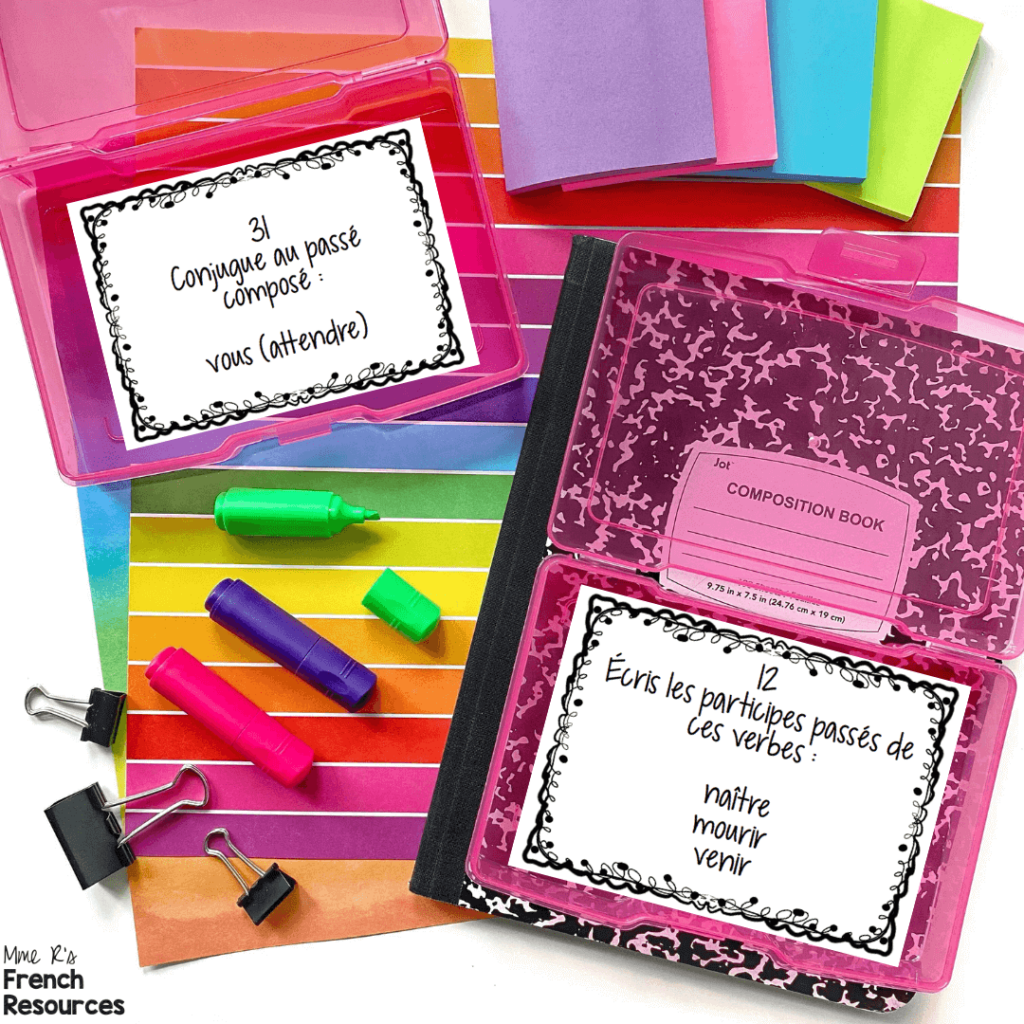
What kind of differentiation can you find in a Mme R French vocabulary unit?
For teaching French vocabulary, I’ve created puzzles, games, speaking activities, creative writing, step-by-step notes, writing activities of all levels, and more. A number of the units even have an English version AND a full-French version so that you can more easily adapt to the more-advanced classes or even use some of the same resources for two levels.
If you don’t need all the activities, you can use them as remediation, make-up work, or quiz review. If you want to make it harder, I’ve got some challenging activities in them, too, so even those fast learners can continue to grow. It’s the perfect way to help all kids build their French vocabulary!
Some of my most popular French vocabulary units include my French imparfait unit, my French numbers unit, my French adjectives unit, and my French -er verbs unit.
How do I know what you need to teach these concepts?
Well, I don’t. However, I’ve had my share of times where my students did not learn what I taught them. Either I didn’t do it very well, the resources I used were not so clear, or they just needed more practice than I offered. Whatever the reason, I had to go back and do it again. It is because of these mistakes, because of the reflection I’ve done, that I found out what my students needed.
After teaching at three distinctly different schools, with three age groups and three learning models, I came to realize all of my students were benefiting from the activities we were doing. Because I have continued to add more support when my students struggled, I’ve come up with activities for teaching French vocabulary and grammar that worked for the students who were really behind, those who were just where they should have been, and those who were ready to move light years ahead.
All students need different ways to practice the French vocabulary you are teaching. That means ample practice speaking, and for many students, this is the learning style they most need if they are to master the concepts. Speaking cards like these are so practical, and each pack has fun activity ideas so you can always keep it fresh!
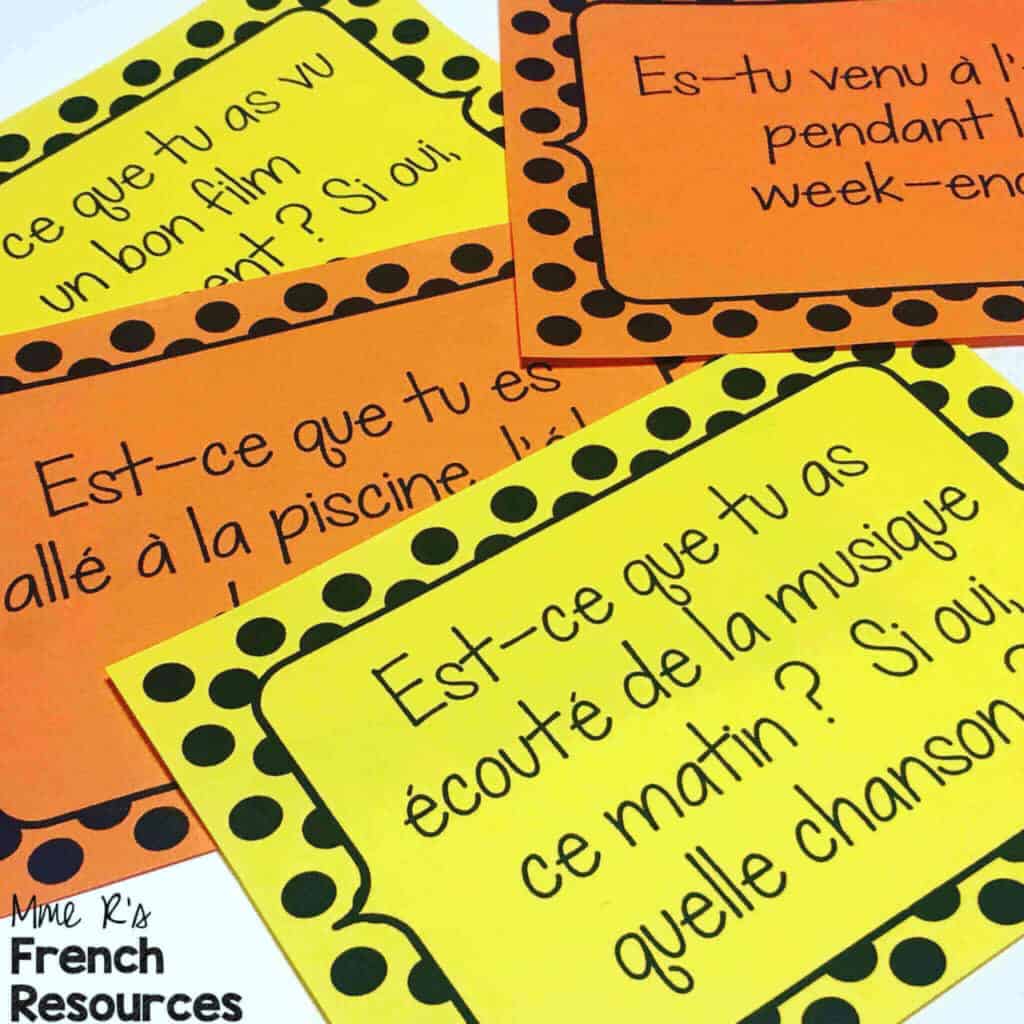
Passé composé speaking cards
How did it all start?
I began teaching in a school with few resources. There was no Internet (not really, compared to what we have today). I had no idea what I was doing, and I was the only French teacher in the district. Who could I even ask?
So here I was, a brand-new teacher, teaching -er verbs for the first time. I just figured that my students would know what verbs were. I thought conjugating would be easy. Boy, was I wrong! They didn’t know what verbs were. They had no idea what subjects were. Conjugating? That was about as foreign of a word as all the French words I’d been teaching.
I taught how to conjugate. They learned the verb endings. I made them repeat words with me. They wrote them down. They did their worksheets. Then … they did their quiz. Wow! Some students did okay, but it was so clear that I had not really reached a lot of them. I tried to teach them where I thought they were, but I had no idea where that really was.
So, over the weekend I sat down and made a French vocabulary and grammar packet of everything that I had failed to teach. (It was a little too big, because I’d failed quite a bit.) This was the first of hundreds of packets I’ve made.
I made sure to break down everything that was not so clear. We walked through it all step by step. To help visual learners with the French vocabulary, I included pictures that held their interest plus images that helped explain some of the concepts. It was direct, easy to follow, and appropriately paced. We used that to guide us through the review.
Each French vocabulary unit I create today comes with a French vocabulary and grammar packet full of easy-to-understand notes, writing activities, and extra activities in case students need a bit more practice. See a few pages of the passé composé packet here:
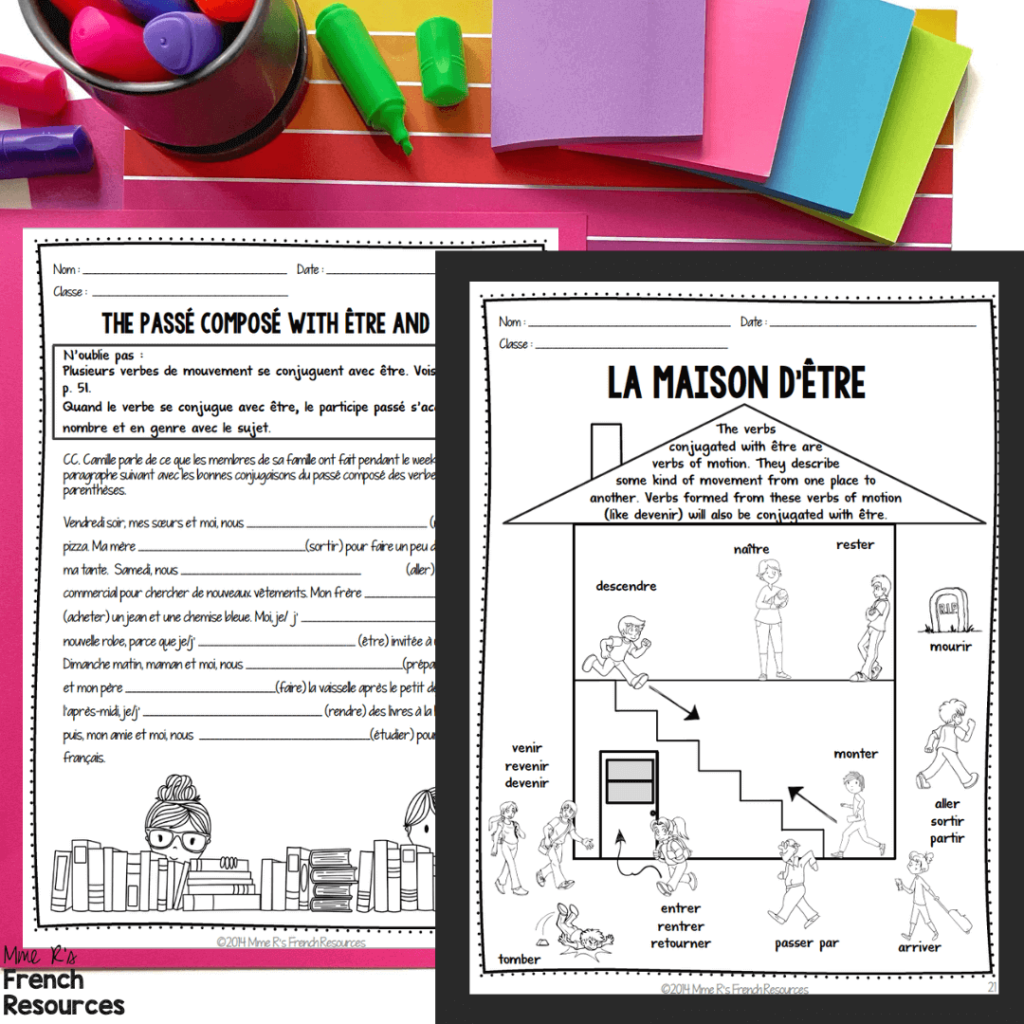
Passé composé notes and writing exercises packet
Once I got that packet done, I made a Find Someone Who... activity. I thought they would groan and refuse to do it, but they loved it! In fact, they loved speaking so much that I made a set of French speaking cards. It was my first, but it was so helpful that I made them for any unit I could!
In addition, I made a French board game. I won’t lie. It was ugly. It was quickly made with marker and copied in black and white. But … it worked! Again, they loved it, they learned from it, and they did so much better on that next quiz!
Now, all of this was almost 20 years ago, so I’d like to think I’ve come up with some new things since then, but the bottom line is this : the resources work because they were all designed with my students’ struggles in mind. There are now so many new things I include, but each French vocabulary unit still has the same core standards :
1. Students should be speaking.
2. Students should have fun.
3. Students should understand what they are doing before moving to the next unit.
4. Students should start learning where they are at, not where the resource expects them to be. It’s okay to have review information that they don’t need. Skipping past it is easier than trying to cram it back in!
5. The pace should not be so fast that students don’t master the concepts, but there should be opportunities to make it more difficult for those who are ready.
6. Teacher grading should not be so time-consuming. (Seriously!)
Want to know what other teachers say about my French vocabulary and grammar units?
⭐️⭐️⭐️⭐️⭐️ “This is a fantastic resource and really is a time saver when having to prepare lessons on the passé composé. The activities are thorough and easy to follow and are an engaging way to practice this concept!”
⭐️⭐️⭐️⭐️”There are so many activities to use no apply right away: face to face mini dialogues to practice oral skills in groups; games to play in small groups; sufficient grammar practice…. The resource is ready to take and use with great success. Great recourse to use during independent times or in min groups. Madame R means great quality !”
⭐️⭐️⭐️⭐️⭐️ “This is an amazing resource! The quality and clarity of all of the items included in the bundle is excellent, it was super easy to print and use right away, and saved me tons of time planning! There are all the resources you could need and more for ER verbs. Definitely recommend this resource.”
⭐️⭐️⭐️⭐️⭐️ “This is a great resource! I really feel that this resource helped me teach adjectives better this year. My kids scored higher on their assessments than last year!”
⭐️⭐️⭐️⭐️⭐️ “Your bundles are all so fantastic! There are so many resources that are ready to go and engaging for the students. Sometimes reflexive verbs are so tough to teach but your bundle is incredibly helpful in reducing the stress of planning!”
⭐️⭐️⭐️⭐️⭐️ “Another great bundle! Your resources are always excellent, making you my first stop for French resources. I can always count on quality and thoroughness with your bundles. They include a great mix of speaking, writing, practice pages, etc.”
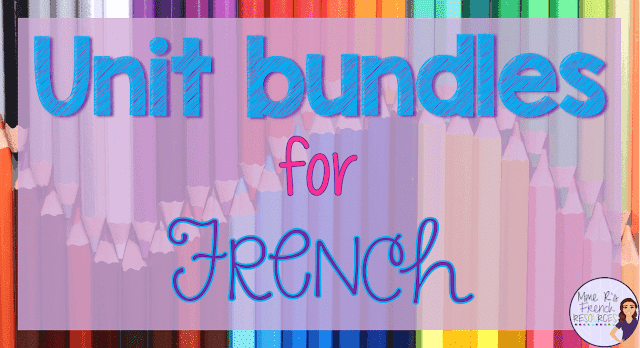
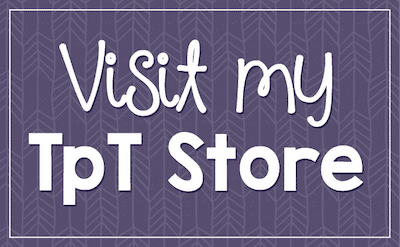
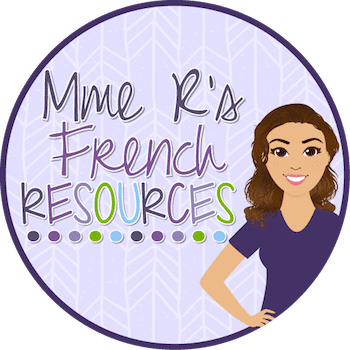
Leave a Reply